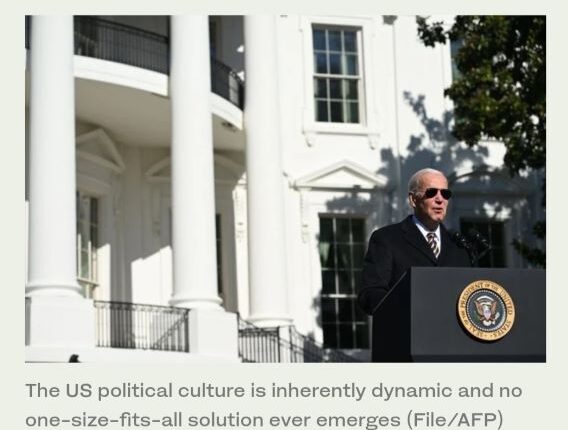Arab News
By: Rabbi Marc Schneier
November 22, 2022

The results of this month’s midterm elections in the US shocked many of America’s closest political observers both here and abroad, as the Democrats significantly outperformed expectations during a cycle when the president’s party usually suffers at the polls.
The Democrats will hold onto control of the Senate and may even add a seat when Georgia’s runoff election occurs in December. While the House of Representatives now shifts to the Republicans, their majority is razor-thin. And clearly, we have seen nothing like the landslide so widely predicted.
The lesson for countries in the region and elsewhere around the world is unmistakable: America is never a predictable country, nor is it one-sided or cardboard. It always entails a multitude of views, Democrat and Republican, conservative and liberal, old and new — and these need to be grappled with and balanced. Ultimately, they must be embraced.
The election was not just about President Joe Biden or former President Donald Trump. Nor did it center on any one issue, like abortion or inflation. Americans, like any other people, have a range of concerns and priorities, from education to their feelings on the direction of the country. And many of these may be far from the headlines or the stump speeches of the candidates.
As we now make sense of the new political reality of a divided Congress, we are reminded that there is no silver bullet for how to engage the US. Most obviously, we have seen that pining for a return of Trump and the Republican congressional majorities he enjoyed in his first two years is folly.
But equally unwise is to put all your hopes in naive Democratic boasts of enjoying a “permanent majority” after the fraught days of the Jan. 6 insurrection. The result is always messier.
“The US political culture is inherently dynamic and no one-size-fits-all solution ever emerges in our body politic” – Rabbi Marc Schneier
Twice this month, I have traveled to the Gulf for historic occasions. First, as a participant in Pope Francis’ historic visit to the Kingdom of Bahrain. And, just in these last days, as an interfaith ambassador at the World Cup, opening the first kosher kitchen for Jewish fans traveling to Qatar.
At both of these august gatherings, the focus was beyond the realm of politics, concerned above all on the sacred duty of fostering harmony and cooperation among different religions and peoples. But given the political significance of the midterm elections in my home country, it was impossible in my meetings with friends and partners, civil society leaders and just plain citizens to avoid questions about America’s political trajectory.
I said much of what I say now — and which I counseled in an Arab News editorial several months ago. The countries of the Gulf should not expect a simple answer. The US political culture is inherently dynamic and no one-size-fits-all solution ever emerges in our body politic.
Our close partners and allies in the region should continue their fruitful engagement with the Biden administration, amplifying the positives of their cooperation and overcoming some of their more high-profile disagreements, such as the recent back-and-forth on the issue of oil policy.
And by all means, the Gulf should forge new relations and strengthen existing ones with Republicans, who now control the House, but in a way that maintains the breadth and depth of their collaboration with Democrats. Above all, make no predictions about 2024, when the next US presidential election will occur, or think the result is scripted or preordained.
As Americans celebrate Thanksgiving with family and friends, we in the US are reminded that our home will always be a complicated place marked by spirited debate and shifting positions. But as we debate and disagree, we also should recall the moral of this holiday, the obligations of generosity, empathy, sharing and compromise.
For those from elsewhere trying to come to terms with all that has recently occurred in the US, I can only counsel one approach: Engage this country, its people and its political system in all its complexity, through all its participants.
If the recent midterms teach us anything, it is that the one-sided approach always fails in the long run. Because the America of tomorrow is never the same as that of today.
• Rabbi Marc Schneier is president of the Foundation for Ethnic Understanding and a noted adviser to many Gulf states. He is recognized as one of the most influential Jewish figures in the Muslim world




